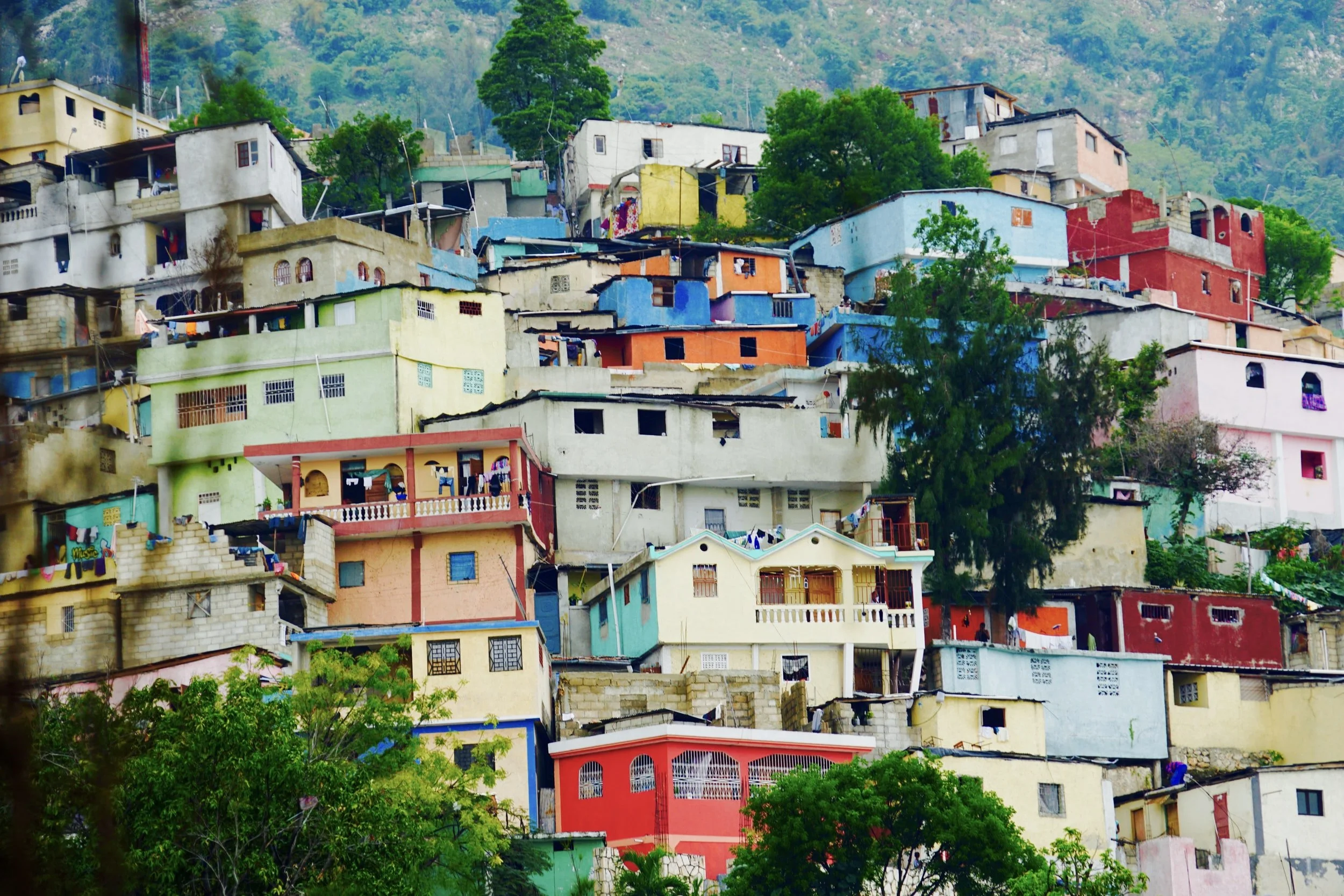Gang Wars Ignite in Cité Soleil
Photo Credit: Heather Suggitt (Unsplash)
Our last newsletter about Haiti, "The Long, Hot Summer in Haiti," was sent almost exactly one year ago. At the time, President Jovenel Moïse had just been assassinated by a team of mercenaries. Haiti was in economic free fall, and Moïse had publicly acknowledged the rise in violent crime, including organized gangs that receive support from ransoms extracted from child kidnappings. If his fierce opposition believed that a political assassination would somehow reduce violent crime, they underestimated the symptoms and conditions that have perpetuated the violence. Exactly one year after Moïse's assassination, Port-au-Prince is once again in the news for an extreme spike in chaos, anarchy, and violence. Two gangs have ripped apart the Cité Soleil district in the country's capital. Who is responsible, and how have Haitian children been impacted by the violence?
Blame it on the Gs.
G9 and G-Pèp are terrorizing the city. According to the BBC, the two gangs in question "were formed as alliances of local gangs which have pooled their weapons, manpower and resources, thereby increasing their influence and reach." G9 is led by a former police officer, Jimmy Chérizier, who is known as "Barbecue." The G9 gang acts with impunity and is not afraid of the government or law enforcement. Last year, they fired shots at a monument where Prime Minister Ariel Henry was preparing to lay a ceremonial wreath. This month's violence between the two gangs allegedly erupted after men associated with G9 entered G-Pèp's territory and tried to remove their gang's leader, Ti Gabriel, from power. In the days since that attack, Human Rights Watch has reported almost three hundred deaths, and Doctors Without Borders/Médecins Sans Frontières (MSF) has said that "thousands of people are trapped without drinking water, food, or medical care."
Children went into hiding.
Hundreds of children of all ages went into hiding at Institution Saint-Louis de Gonzague. To get to the school safely, they wore uniforms and convinced gang leaders that their trip to the school was part of a normal routine. They managed to escape the gang violence, but not all of their parents were spared. The United Nations (UN) believes that between July 7 and 17, 471 people were maimed or killed, or they simply remain unaccounted for in the city. Reuters was able to visit the school sheltering youth and reported that there is insufficient food to satisfy demand. Sister Rosemiline, a nun with a religious community known as the Kizito Family, told Reuters that "the kids need a lot of help," adding, "the situation is really bad where they are from. We are waiting for food but what we get is not satisfactory to the kids."
The UN is trying to stop the influx of guns.
Earlier this month, the UN Security Council approved a resolution asking all countries to halt the transfer of "small arms, light weapons, and ammunition" to Haiti. At China's urging, the U.S. and Mexican governments drafted the resolution. The final language, which is not as strict as China's request, states that the Council is prepared to impose sanctions and institute travel bans if needed within 90 days of the resolution's adoption. This action was necessary given the recent influx of guns into the country. For example, Reuters reported that on July 14, Haiti seized containers filled with weapons, including handguns and almost 15,000 rounds of ammunition. The containers had been shipped from a location in the U.S. to the Episcopal Church of Haiti, allegedly under false shipping documents.
Support Doctors Without Borders/Médecins Sans Frontières (MSF) in Haiti. MSF's July update says that "staff in MSF's emergency center in the Drouillard area have been stabilizing wounded patients and referring them to hospitals when possible." The statement added that the "work has been challenging, in part, due to armed clashes in the immediate vicinity of the center, which have required the staff to take shelter in a safe room for hours." While trying to save civilians, their teams "have encountered corpses that are decomposing or being burned." Right now, MSF's main focus in Haiti is to "save as many lives as possible." MSF accepts one-time gifts and recurring monthly donations to support its critical medical missions in Haiti and other conflict zones around the world.



